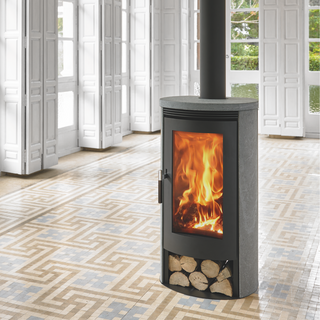The lifespan of a stove can vary depending on several factors, including the quality of the stove and how well it is maintained and used.
Generally speaking, a well-built and maintained stove can last up to 30 years. If you want a stove with a long lifespan, check out our affordable range of stoves. Click here to view
Factors affecting the lifespan of the stove
An important factor for the lifespan of a stove is its construction and choice of materials. Stoves made from high-quality materials such as cast iron or steel are usually more durable than cheaper alternatives. A well-built wood stove is less likely to warp or crack under the stresses of repeated heating and cooling cycles.
Care and maintenance are also crucial to maximizing the life of a stove. Regular cleaning and checking of flues and chimney pipes is important to avoid the build-up of soot and other contaminants that can cause corrosion or blockage. Burning with dry and properly stored wood can also help reduce the risk of soot formation and damage to the stove.
The actual use of a stove can also affect its lifespan. If the stove is used daily throughout the winter months, it will naturally undergo more wear and tear than if it is only used sporadically or on occasional occasions. Using the stove in moderation and avoiding excessive heat can help extend its life.
It is important to remember that although a stove can last for many years, it may need regular service and maintenance to continue to function optimally. Hiring a professional to inspect and clean the stove annually can help detect and fix any problems at an early stage.
In conclusion, a well-made and well-maintained stove can be expected to last for many years. By investing in a quality stove, taking proper care of it and using it sparingly, you can maximize the life of your wood stove. You can explore our range of wood-burning stoves and find your dream stove with us. Click here to view























